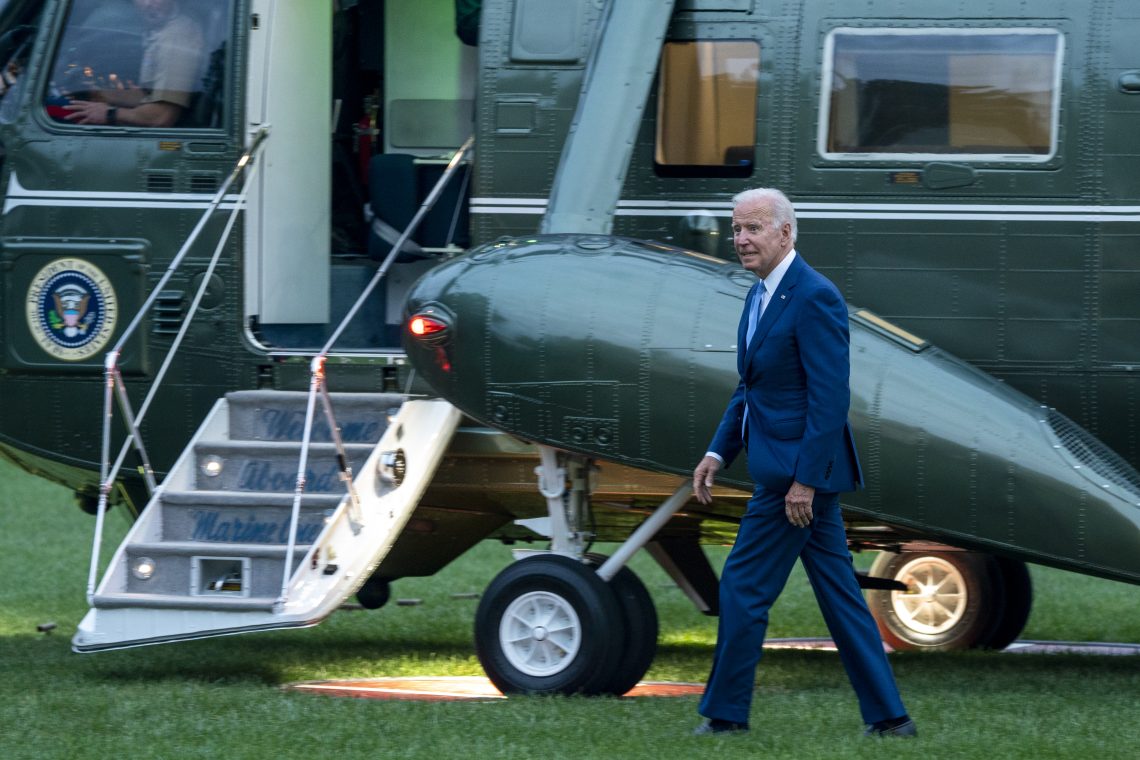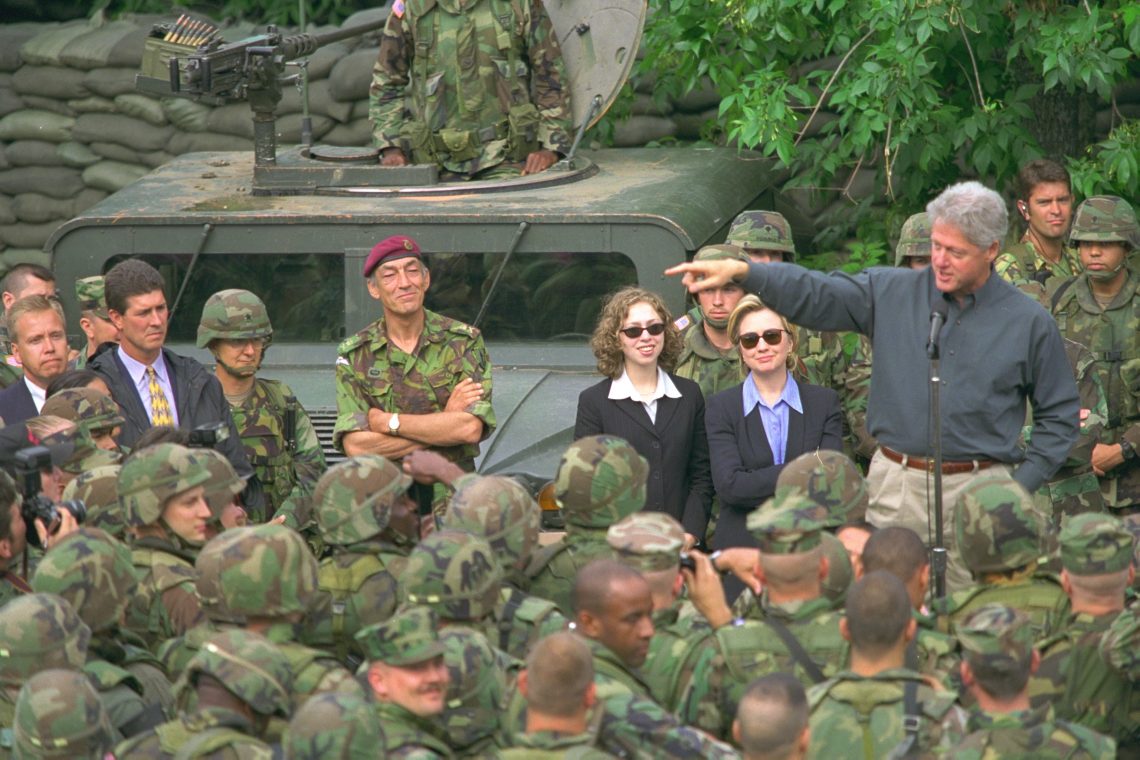The role of domestic consensus in U.S. foreign policy
Although political divides in the United States have sharpened, there are areas of strong consensus in foreign and defense policies, including continued support for Israel, concern about China and support for punitive action on Russia.

In a nutshell
- U.S. presidents have significant authority to act in foreign policy
- Congress has limited ability to interfere in this area
- Domestic political divisions rarely impact U.S. foreign policy conduct
There is no question that much of the divisiveness over United States foreign and security policy emanates from internal domestic political divides, and that those divisions are becoming sharper. However, fears that the lack of internal consensus could paralyze U.S. action overseas are overblown. Whether or not the present administration decides to act with greater confidence and decisiveness in the future will be determined more by its strategic choices than any constraining lack of consensus at home.
What has changed?
The old adage that “politics stops at the water’s edge” has been relevant throughout most of modern American history. With few notable exceptions, such as the domestic turmoil over the Vietnam War (1964-1973), domestic discord has not overtly restricted U.S. foreign policy. Indeed, it has been consensus at home that has more often imposed significant constraints – such as resistance to the U.S. entry into World War II.
After the war, the two major political parties were not monolithic on foreign affairs. The Democratic Party, for instance, included a substantial number of “Blue Dog” Democrats who often sided with conservative Republicans on defense and international issues.
Despite the propensity of the two political parties to clash on decisive issues, a division is not always a constraint in contemporary matters of foreign and security policy.
But in recent decades, the character of the political parties has changed, resulting in more political uniformity. Lately, Congressional delegations more consistently reflect the views of the party leadership on both domestic and foreign affairs. This sorting has resulted in sharper policy differences in recent years when the parties have come down on different sides of an issue, such as the Democrats’ backlash over the postwar occupation of Iraq or their efforts to impeach former President Donald Trump.
Elements of unity
Despite the propensity of the two political parties to clash on decisive issues, a division is not always a constraint in contemporary matters of foreign and security policy. Defense is a case in point: While the Biden administration’s initial proposal for a defense budget featured no spending increase in real terms, there was strong bipartisan consensus for higher defense outlays. The sentiment was reflected in the defense authorization bills of both the House and the Senate. Moreover, support for nuclear modernization and investing in the nuclear triad (land-based missiles, bombers and submarines) is strong in both parties. During both previous administrations, divisions on these issues were sharper.
There are areas of consensus in foreign policy, including continued support for Israel, concern about China, and support for punitive action on Russia.
Presidential action
In the U.S. governance system, the executive branch has significant authority and capability to act in overseas affairs. Presidents have acted decisively without domestic consensus or broad support in Congress. Indeed, Congress can only restrain presidential action after deliberative consultation and legislative action (like defunding activities). That requires broad Congressional support and sufficient consensus to override a presidential veto of the restricting legislation.
The Afghanistan withdrawal is a case in point. Though the president’s policy was considered very controversial in Congress and among the American public, his actions remain largely unconstrained.
Restraint or constraint?
Looking ahead, the concern is that other problems accompany the U.S.’s domestic political divisions. The administration has seen its approval ratings sharply decline. Also, the Democratic Party leads with narrow margins in both houses of Congress; polls now suggest the president’s party may lose majorities in one or both in the upcoming midterm elections. How will these perceived weaknesses on the domestic front affect the administration’s foreign and defense policy conduct?
Previous presidents have faced similar challenges. In general, presidents only acted in a restrained manner when faced with a robust political consensus against action. Examples include the inability of President Gerald Ford (1974-1977) to block the cutting-off of support for South Vietnam in 1975, and President Jimmy Carter (1977-1981) withdrawing in 1977 his plan to pull American troops out of South Korea. In contrast, other presidents remained proactive even with sinking approval ratings and domestic support – as long as they did not face strong, unified political consensus in opposition. Examples include President Bill Clinton’s (1993-2001) prosecution of the war in the Balkans (1999) and President George W. Bush’s (2001-2009) “surge” in Iraq (ramping up the number of troops in that country in 2007).

Further, from a historical perspective, U.S. presidents generally have significant leeway in times of crisis, at least in their initial actions. Congress and the American people often “rally round the flag.” They did so after the Japanese attack on Pearl Harbor (1941) and the 9/11 terrorist attacks on New York and Washington, D.C. However, even when the public remains unconvinced – like it was, for example, after President Trump directed action to kill a top Iranian military leader, the mastermind of terrorist attacks against U.S. forces – the commander-in-chief is still able to act with authority and alacrity.
The White House is much more likely to be constrained in future actions by its own policies.
Finally, there is scant evidence that U.S. presidents have taken dramatic action abroad to shore up failing domestic support at home. During the war in the Balkans, critics of President Clinton raised the analogy of the 1997 film “Wag the Dog” to suggest the president pushed NATO operations to distract from efforts to impeach him. That was certainly not true then, and it remains an unlikely strategy to be employed in the future.
The current state of American politics does not suggest that President Biden is facing any uniquely different pressures. Few defense or foreign policy issues are on the horizon where the Biden administration may face a broad and strong opposition. The White House is much more likely to be constrained in future actions by its own policies.
Biden doctrine
While the Biden administration has been demonstrative and forward-leaning on global issues such as climate change, in other strategic challenges, it appears to seek status-quo relations, an approach similar to that of the administration of President Barack Obama (2009-2017). That is not surprising since many of the key officials in the Biden team, and Mr. Biden himself, served in that administration.
Scenarios
The most likely scenario is that the administration will be more forward-leaning on foreign policy, particularly if the president’s party fares poorly in the midterm elections. Foreign affairs is one area where presidents can continue to assert their authority and show their tenures to be robust and active.
That said, presidential initiatives with major adversaries such as Russia, China, Iran, and North Korea are unlikely, as the prospects for serious cooperation are low. The Biden administration loathes being overly confrontational. More likely, it will seek to partner with like-minded allies. Also, the U.S. will respond firmly to open aggression that threatens American interests. It will honor too the country’s defense and treaty obligations.
A wild card is that adversaries may press for a confrontation in any of the world’s hot spots from Taiwan to Ukraine. More than likely, after the intense criticism the Biden administration received for the ill-prepared withdrawal from Afghanistan, it would feel under pressure to respond forcefully to a crisis – lest it becomes locked in the image of foreign policy weakness. Indeed, when faced with a threat of a problem, the administration would likely prefer to negotiate or make concessions. But faced with a direct challenge, it would probably feel compelled to respond decisively.







